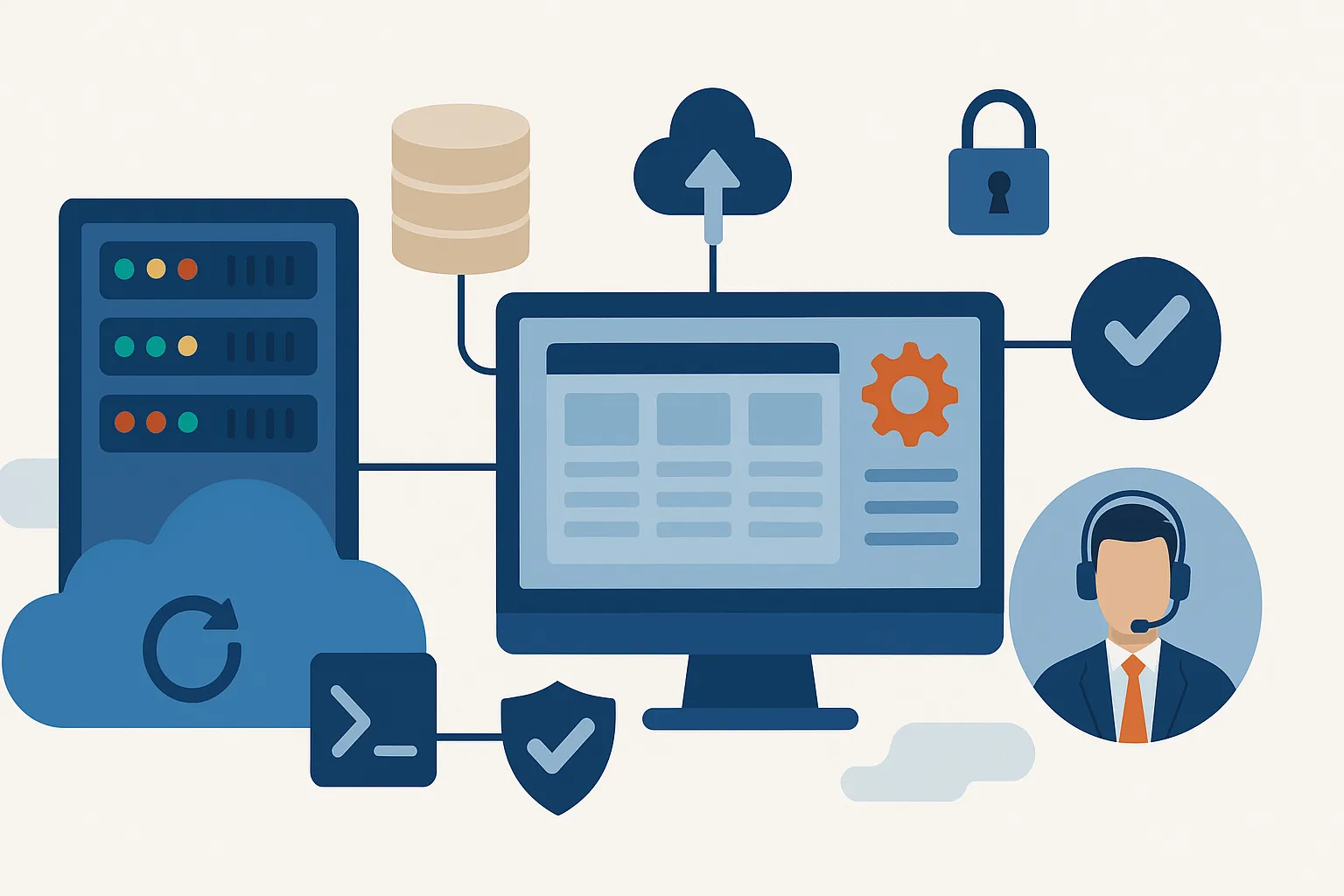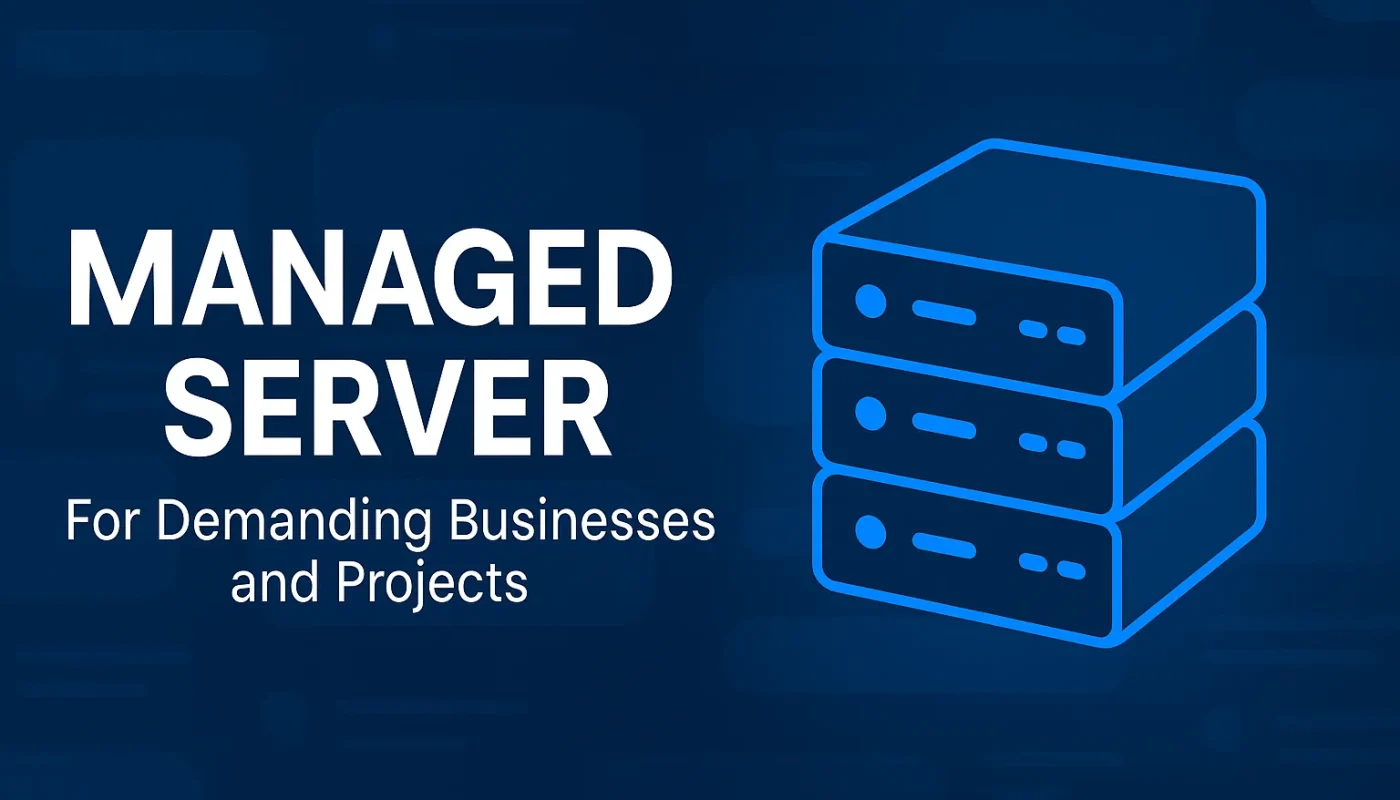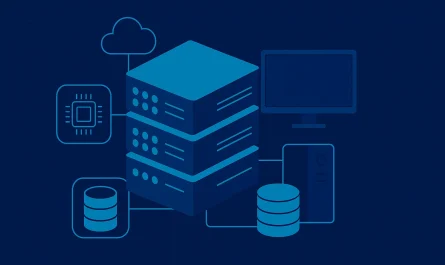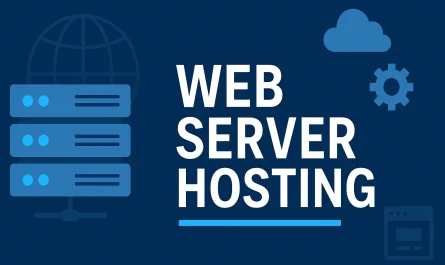In the world of web hosting and digital infrastructure, choosing the right server type can make a significant difference in performance, security, and scalability. One of the most recommended options for businesses needing power and specialized support is the managed server.
What Is a Managed Server?
A managed server is a type of server—whether dedicated or virtual—whose technical management is handled by the hosting provider. This means the client doesn’t have to worry about tasks such as:
- Software installation and updates
- Operating system configuration
- Security patching
- Performance monitoring
- Backup management
- Advanced 24/7 technical support
In essence, it’s an all-in-one hosting solution that frees the client from technical complexities, allowing them to focus entirely on their business.
How Does a Managed Server Work?

When you purchase a managed server, you’re paying not just for the hardware or resources (CPU, RAM, storage, bandwidth), but also for a team of experts who ensure everything runs optimally.
These services typically include:
- Intuitive control panel (such as cPanel, Plesk, or custom dashboards)
- Optional root access
- Proactive support
- Automatic updates
- Database, DNS, and SSL certificate management
- DDoS protection and firewall configuration
Everything is designed to deliver a secure, stable, and professional experience.
Key Benefits of a Managed Server
The primary advantages of a managed server compared to unmanaged solutions or shared hosting include:
1. Time and Resource Savings
You don’t need to hire a system administrator or spend time troubleshooting technical issues. The provider handles it all.
2. Enhanced Security
Managed hosting companies implement advanced security protocols, automatic updates, and 24/7 monitoring to protect your website or application.
3. Expert Support
In case of incidents or questions, you have access to certified experts around the clock—crucial for mission-critical services.
4. Optimized Performance
Managed servers are often optimized for specific platforms (like WordPress, Magento, or heavy database usage), translating into superior speed and stability.
5. Scalable Infrastructure
Resources can be upgraded with minimal or no downtime—ideal for growing businesses or projects with fluctuating traffic.
When Is a Managed Server the Best Choice?

A managed dedicated server is ideal in the following scenarios:
- E-commerce stores handling sensitive data and high volumes of transactions.
- Digital agencies managing multiple client websites.
- SaaS companies delivering cloud-based services to a broad user base.
- News/media outlets needing high availability for real-time publishing.
- Enterprise applications requiring high performance and data protection.
Difference Between Dedicated Server and Managed Dedicated Server
Though both options may use the word dedicated, they are not the same:
| Feature | Dedicated Server (Unmanaged) | Managed Dedicated Server |
|---|---|---|
| Technical management | Handled by the client | Handled by the hosting provider |
| Requires technical knowledge | Yes | Not necessarily |
| Proactive support | Limited | Included and specialized |
| Cost | Lower | Higher but with added value |
| Built-in security | User’s responsibility | Included and optimized |
Managed Hosting vs Shared Hosting
Shared hosting is cheaper but far more limited. In contrast to a managed server, it offers:
- Lower performance (resources shared among many users)
- Limited flexibility (no custom software installations)
- Reduced security (risks from other users on the server)
- Basic technical support
On the other hand, a managed server is a robust, scalable, and professional solution for serious digital projects.
Must-Have Features in a Managed Server

Before signing up for a managed hosting plan, make sure it includes:
- User-friendly control panel
- Guaranteed uptime (at least 99.9%)
- 24/7 expert support in your preferred language
- Automated backups
- Malware and DDoS protection
- Free SSL certificates
- Quick scalability (CPU, RAM, SSD upgrades)
- Secure and geographically relevant data centers
Some providers also offer free migration services, which can be very convenient if you’re moving from another host.
How Much Does a Managed Server Cost?
Managed server pricing varies depending on the provider, included resources, and support level. On average:
- Managed VPS: $30 to $150 USD/month
- Managed Dedicated Server: $100 to $500+ USD/month
While the cost is higher than unmanaged or shared hosting, the added value justifies the investment for business-critical projects.
Top Managed Server Providers
Here are some of the most trusted names in the managed hosting industry:
- Hostinger – Great for medium-sized projects and WordPress sites
- SiteGround – Known for speed and outstanding support
- Bluehost – Reliable, user-friendly option
- Liquid Web – Premium managed hosting for large-scale enterprises
- A2 Hosting – High performance, developer-friendly
- Kinsta – WordPress-focused managed server solutions
Choosing the right provider depends on your specific needs, budget, and technology stack.
Final Thoughts on Managed Servers
A managed server is the ideal solution for businesses seeking high performance, stability, and professional technical support—without needing to manage the server themselves. It’s a smart investment for eCommerce, digital agencies, SaaS platforms, or any business that can’t afford downtime or security breaches.
Though the upfront cost may seem higher, the peace of mind, speed, and reliability you gain make managed servers one of the most cost-effective hosting options in the long run.



